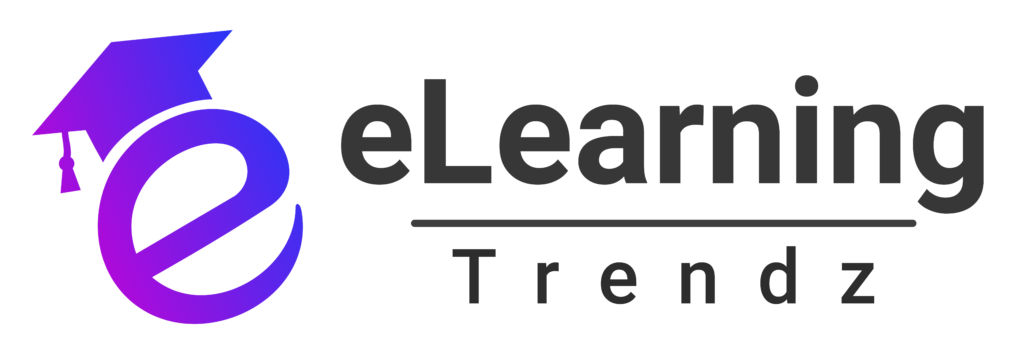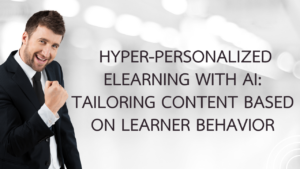The rapid advancements in artificial intelligence (AI) have reshaped various industries, and eLearning is no exception. The integration of AI into Learning Management Systems (LMS) is transforming traditional training methods, making learning more personalized, data-driven, and efficient. A smart LMS with AI leverages machine learning, automation, and predictive analytics to enhance online training experiences, making them more adaptive and effective. As organizations strive to improve workforce development, LMS with AI is becoming an indispensable tool for intelligent training solutions.
Personalized Learning Experience
One of the biggest advantages of an LMS with AI is its ability to deliver personalized learning paths based on an individual’s progress, preferences, and performance. Traditional LMS platforms provide static courses, but AI-driven LMS systems analyze learner behavior, identifying strengths and weaknesses to recommend tailored content. This level of customization ensures that learners receive relevant training, enhancing engagement and retention rates.
With AI-powered adaptive learning, an LMS with AI can automatically adjust course difficulty based on learner responses. Employees who excel in a topic can be fast-tracked, while those struggling receive additional resources or alternative explanations. This dynamic approach eliminates the one-size-fits-all model, making corporate training more effective and efficient.
Automated Administrative Tasks
Managing corporate training programs can be time-consuming, but LMS with AI streamlines administrative tasks through automation. AI-driven features such as automated grading, course recommendations, and learner progress tracking reduce the workload for trainers and HR professionals. Additionally, AI-powered chatbots provide instant assistance, answering learner queries and guiding them through the platform.
By automating repetitive tasks, organizations can focus on developing high-quality content and improving learner engagement. AI-based automation also ensures timely notifications, reminders, and certification tracking, making compliance training more manageable.
Data-Driven Insights and Predictive Analytics
AI-powered analytics play a crucial role in optimizing training programs. An LMS with AI collects and analyzes vast amounts of data, providing actionable insights into learner performance, engagement levels, and content effectiveness. Organizations can use these insights to refine training strategies, ensuring maximum ROI.
Predictive analytics enables businesses to anticipate skill gaps and proactively address them. By analyzing past performance and behavioral patterns, AI can recommend future training needs, helping companies stay ahead in workforce development. The ability to measure learning impact and track progress in real-time empowers L&D teams to make data-driven decisions.
Enhanced Engagement with AI-Powered Content
Traditional eLearning content can sometimes feel monotonous, leading to decreased engagement. LMS with AI enhances content delivery by incorporating interactive and multimedia elements, such as AI-generated videos, virtual simulations, and gamification. AI-powered content creation tools can generate quizzes, simulations, and personalized study materials, ensuring a dynamic and immersive learning experience.
Natural Language Processing (NLP) further enhances engagement by enabling voice-based learning and AI-driven assessments. Learners can interact with virtual tutors, receive real-time feedback, and engage in conversational learning experiences. These innovations make online training more engaging and effective.
Smart Assessments and AI Proctoring
Assessment and evaluation are integral to training programs, and AI enhances these processes through smart assessments and proctoring solutions. An LMS with AI can generate intelligent quizzes, adapting questions based on learner responses. This ensures that assessments accurately reflect individual skill levels and knowledge retention.
AI-powered proctoring solutions prevent cheating in online exams by using facial recognition, keystroke analysis, and behavior tracking. Organizations can conduct secure and credible assessments, making online certification programs more reliable.
Seamless Integration with Business Systems
A modern LMS with AI seamlessly integrates with other enterprise tools such as HRMS, CRM, and ERP systems. This connectivity ensures that learning data is synchronized across platforms, providing a unified training ecosystem. For instance, integrating an AI-powered LMS with HR software allows organizations to align training programs with employee performance metrics and career development goals.
AI-driven integrations also enable personalized course recommendations based on job roles, ensuring that employees receive training relevant to their responsibilities. This enhances skill development and boosts overall productivity.
Scalability and Future-Readiness
As businesses expand, so do their training requirements. An LMS with AI is highly scalable, capable of accommodating growing learner bases and evolving training needs. AI-powered cloud-based LMS solutions provide flexibility, allowing organizations to train global teams efficiently.
With continuous advancements in AI, LMS platforms will continue to evolve, incorporating emerging technologies such as augmented reality (AR), virtual reality (VR), and blockchain-based credentialing. Investing in an AI-powered LMS ensures future-readiness, keeping organizations at the forefront of digital learning innovation.
Conclusion
The future of corporate training lies in LMS with AI, which offers personalized learning, automation, predictive analytics, and enhanced engagement. By integrating AI-driven features, organizations can improve workforce development, streamline administrative tasks, and optimize training strategies. As businesses embrace digital transformation, adopting an LMS with AI is no longer an option—it is a necessity for staying competitive in the ever-evolving corporate landscape.









